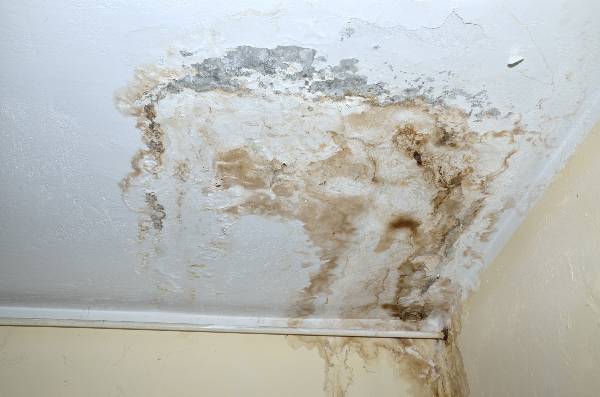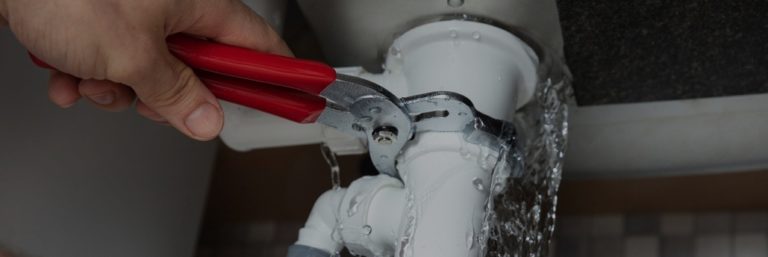What're your opinions on Detecting hidden plumbing leaks?

Early detection of dripping water lines can minimize a potential catastrophe. In addition to conserving you money, it will certainly minimize the aggravation as well as irritation. The minute you locate a leakage, calling your plumber for repair work is the most effective remedy. Some little water leakages might not be noticeable. If you can not detect it with your nude eyes, right here are some hacks that assist.
1. Take A Look At the Water Meter
Checking it is a surefire method that assists you find leakages. If it moves, that shows a fast-moving leak. This indicates you might have a slow leak that can even be underground.
2. Check Water Consumption
Analyze your water bills and also track your water intake. As the one paying it, you must discover if there are any inconsistencies. If you identify sudden changes, despite your usage coinciding, it means that you have leaks in your plumbing system. Keep in mind, your water costs ought to fall under the same array on a monthly basis. A sudden spike in your costs shows a fast-moving leakage.
A consistent increase every month, even with the very same habits, reveals you have a slow leak that's likewise slowly rising. Call a plumber to completely examine your property, especially if you feel a warm location on your floor with piping below.
3. Do a Food Coloring Examination
When it comes to water intake, 30% comes from bathrooms. If the color somehow infiltrates your dish during that time without flushing, there's a leakage in between the container and also dish.
4. Asses Exterior Lines
Don't neglect to check your outside water lines also. Should water leak out of the connection, you have a loosened rubber gasket. One small leakage can throw away loads of water as well as increase your water costs.
5. Check and Analyze the Situation
House owners should make it a habit to check under the sink counters and even inside closets for any kind of bad odor or mold growth. These 2 red flags show a leakage so punctual attention is called for. Doing routine assessments, also bi-annually, can save you from a major issue.
If you know your residence is currently old, keep a watchful eye on your heating units, hose pipes, pipes and so on. Check for discolorations and also damaging as many appliances and pipes have a life expectancy. They will certainly likewise naturally degrade due to wear and tear. Do not wait for it to intensify if you presume dripping water lines in your plumbing system. Call a professional plumber today so you don't wind up with a horrible mess in your house.
Early detection of leaking water lines can mitigate a prospective calamity. Some tiny water leakages may not be visible. Checking it is a guaranteed means that assists you find leaks. One small leak can lose loads of water and spike your water expense.
If you think leaking water lines in your plumbing system, don't wait for it to escalate.
5 SMART WAYS TO FIND HIDDEN WATER LEAKS WITHOUT DESTROYING YOUR HOUSE
Monitor Your Water Meter
If you start to notice a higher water bill but you know that your water usage hasn’t increased, it’s a good sign that there’s a leak. Keep a close eye on your water meter to see if you detect any huge fluctuations.
While you’re outside, make sure that there is no water source accidentally left turned on such as a garden hose. Turn all water off including inside water before you check the meter.
Next, take a closer look at the leak indicator and look for any movement. It depends on the type meter you have but for many, it’s a triangular-shaped dial. It may also look like a small silver wheel that spins when water flows through it.
If either of these types of dials is turning after you’ve turned the water off, you likely have a leak. Another option is to take a reading and then wait an hour or two.
Take a second water meter reading to see if anything has changed. This is how to detect water leaks for most of your home. Just make sure you haven’t used any water during that hour to a two-hour window.
Check Your Faucets
For many homeowners, the source of a water leak stems from the faucets. A worn rubber washer is often the culprit and can be found underneath the handle.
You can easily replace the washer if you have the correct tools. You will need to turn the water off under the sink, or at the main cutoff valve.
Next, remove the faucet handles to access the gasket. Most home improvement or hardware stores sell replacement gaskets and the tools you need to fix this simple, common problem.
How to Detect Water Leaks from Your Toilet
The toilet is another common culprit for water leaks, and it can often go unnoticed. A leaky toilet can waste several hundred gallons of water, which also means it can waste quite a bit of money.
Remove your tank lid and add a few drops of food coloring to the tank. Dye tabs are another easy alternative that can be purchased at many hardware stores.
Let the coloring saturate the water and wait approximately 30 minutes without flushing. If any color has come through the tank and into the toilet bowl, you likely have a leak.
Luckily, these types of leaks can often be resolved by replacing the flapper. The flapper has likely just worn out over time or become cracked which causes water to constantly flow from the tank into the bowl without you even noticing.
Another toilet-related red flag? If you need to jiggle the handle to keep your toilet from running, you likely have an issue with the flush bar and chain sticking.
You can fix this by adjusting the nut that secures this mechanism inside the tank. Or, you might need to replace the handle since it could be sticking.
Be Aware of Underground Water Leaks
Outdoor water leaks can get quite expensive to repair, so it’s important to know what to look for. If an area of your yard seems softer than others or you notice dark spots, this could be cause for concern.
If one particular area around your home seems to stay wet even after a dry spell, this is a red flag. You can also look closely near your driveway and street and see if you notice any unusual water flow.
Water flow doesn’t have to be a constant stream of flowing water. Even puddles that seem out of place may indicate that there’s a deep, underground leak.
If you suspect that you have an underground leak, call your local water or utility company as soon as possible. They have the tools and the know-how to further diagnose and fix the issue.

As a reader on Finding hidden leaks, I thought sharing that piece was important. Sharing is nice. You won't know, you may just be helping someone out. Thank you so much for going through it.